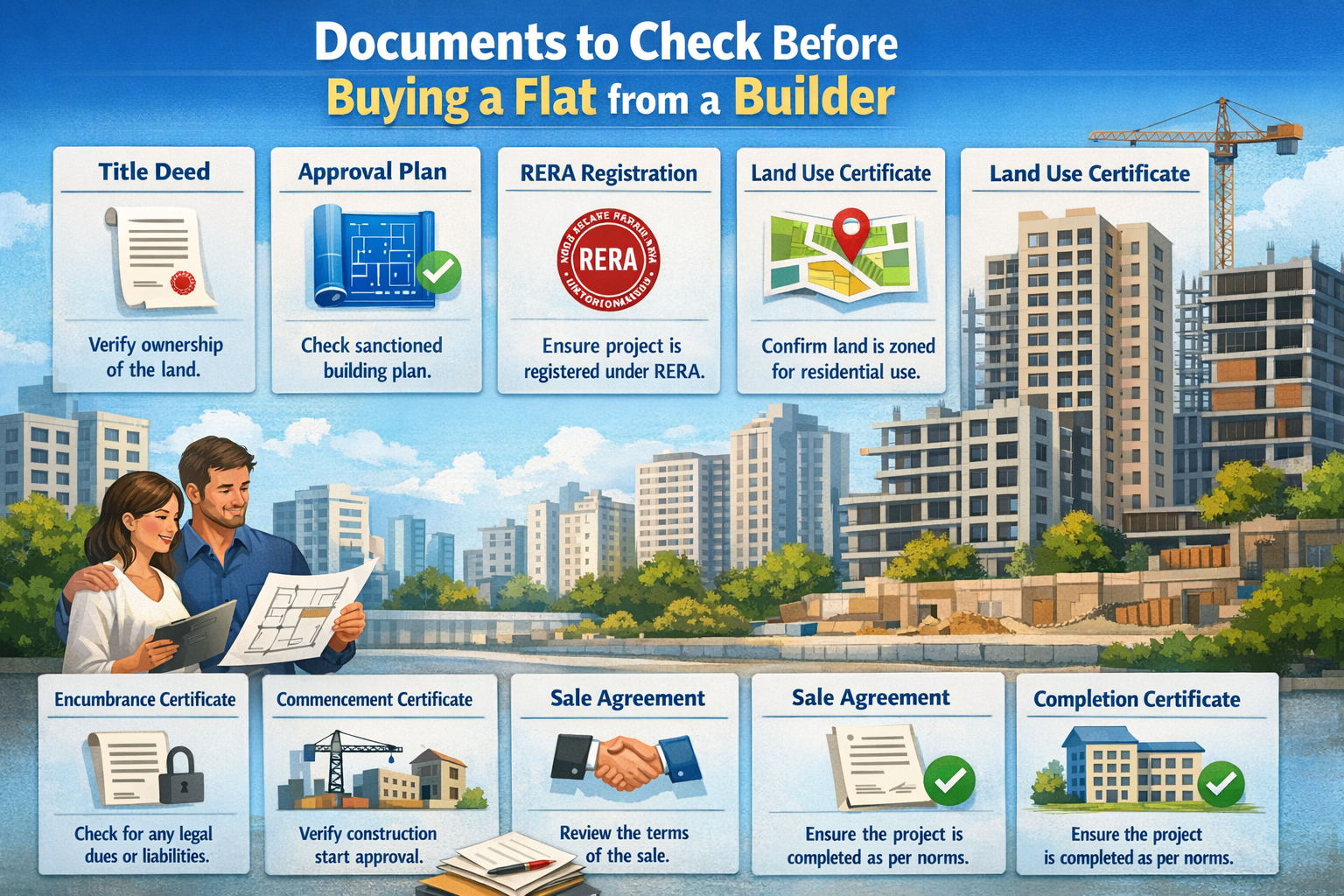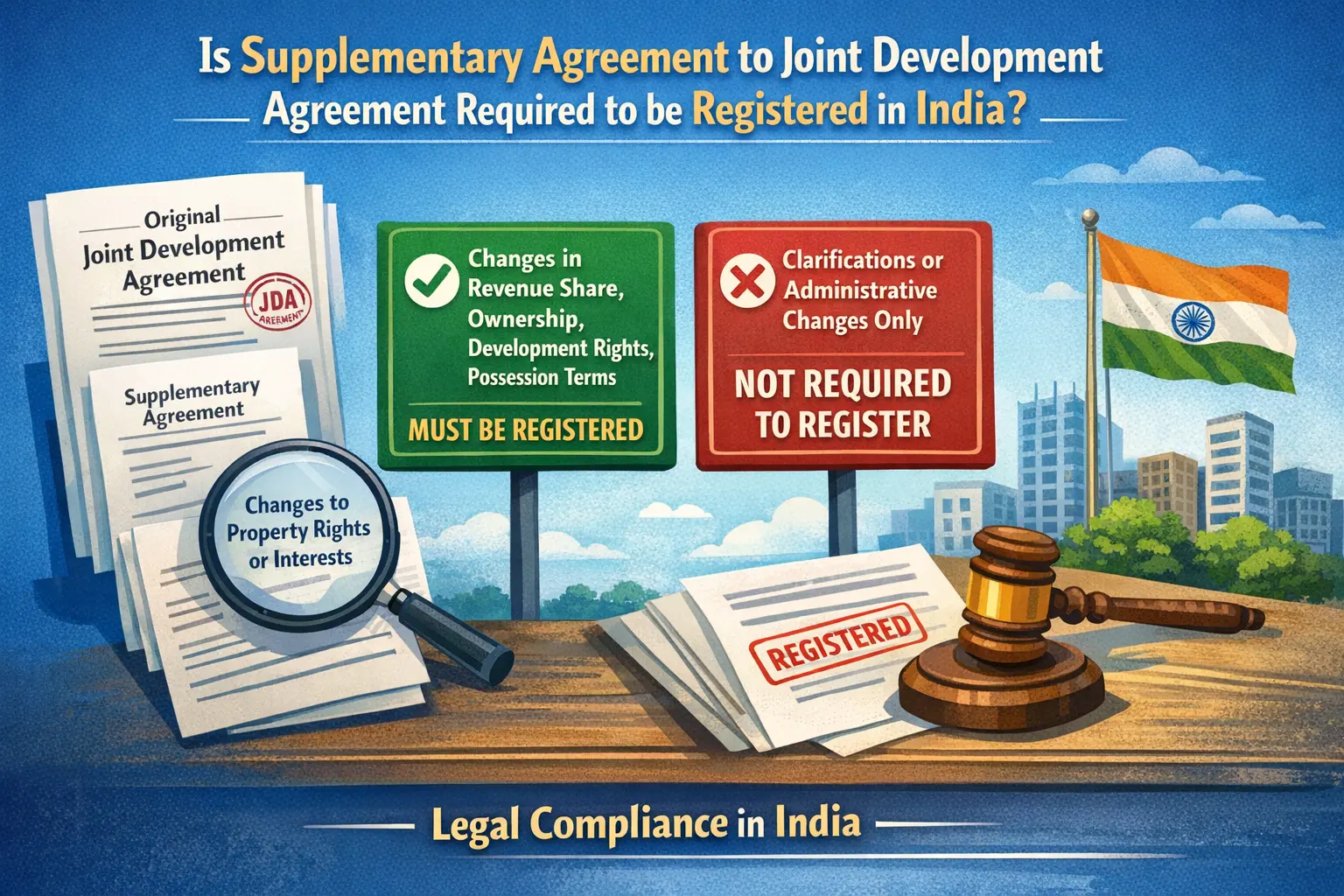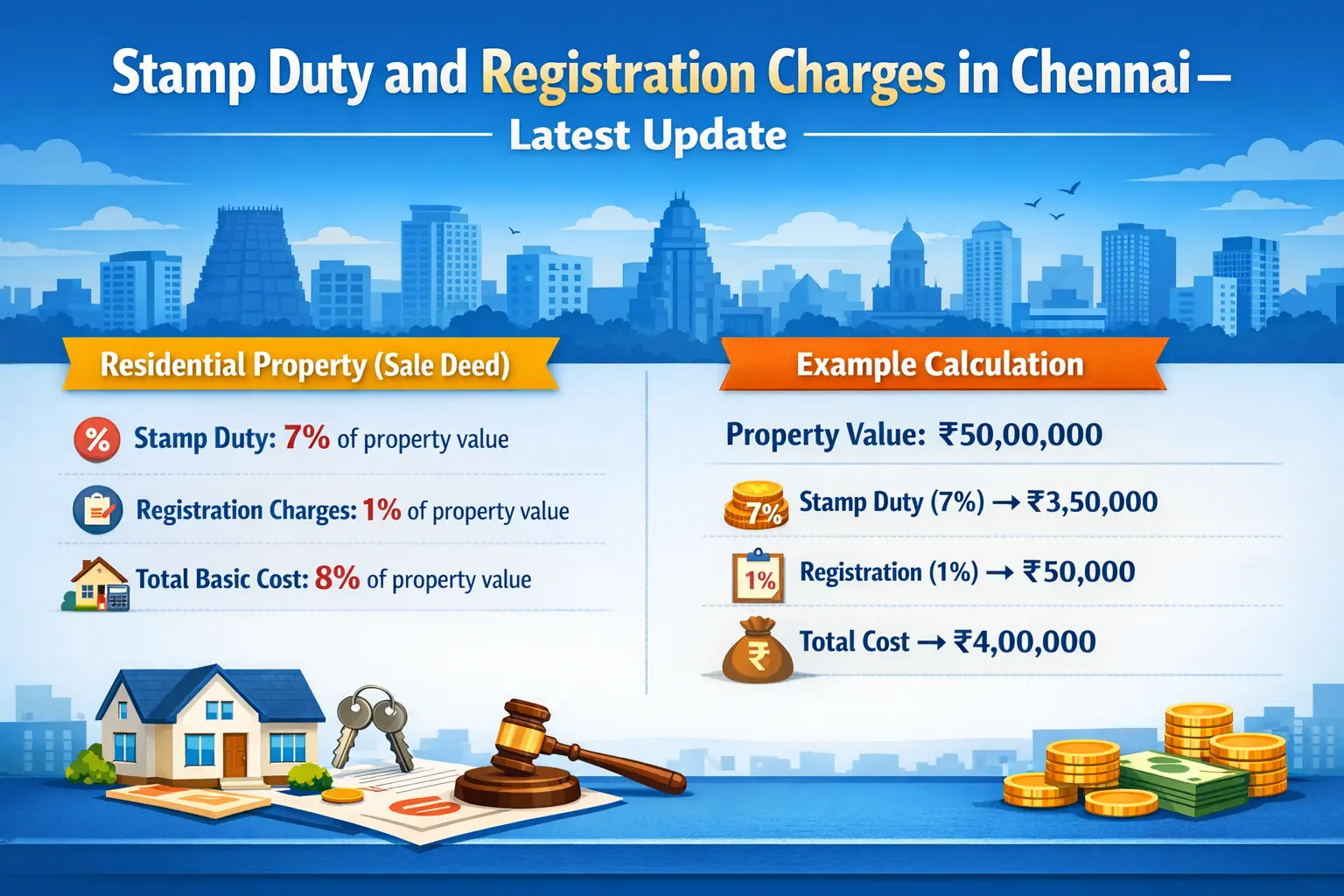Buying land in Chennai can be a great investment, but due diligence is essential to avoid legal, financial, or construction issues later. Here is a full breakdown of the checks to perform before making a purchase:
1. Title Deed Verification
-
Ensure the seller is the legal owner of the plot.
-
The title should be clear, marketable, and free from disputes.
-
Ask for original title deeds and all previous ownership documents (parent documents for at least 30 years).
-
If the land was inherited, get copies of the legal heir certificate or probate of will.
2. Encumbrance Certificate (EC)
-
Get the EC from the Sub-Registrar Office or online via the Tamil Nadu Registration Department.
-
Check for the past 30 years if possible.
-
It shows if the plot has any legal dues, mortgages, or pending litigation.
3. Patta, Chitta & Adangal
-
Patta is the government record of ownership. Ensure it's in the seller’s name.
-
Chitta classifies the land as residential, agricultural, or commercial. Avoid plots classified as agricultural unless converted.
-
Adangal gives further land details from the Village Administrative Officer (VAO).
-
Check all these documents at the Taluk Office.
Also Read: Do You Know What is Patta Chitta and What is the Process to Apply Patta
4. Verify Land Use Zoning & Classification
-
Confirm if the land falls under residential zoning as per the CMDA (Chennai Metropolitan Development Authority) or DTCP (Directorate of Town and Country Planning).
-
Avoid buying land in green zones, agricultural, or industrial zones unless you have the proper conversion approvals.
5. Layout Approval
-
Make sure the plot is part of a layout that’s approved by:
-
CMDA (for plots within Chennai metro limits),
-
DTCP (for suburban/rural plots), or
-
Panchayat/Local Authority.
-
-
Never buy plots in unapproved layouts—you may not get permission for building and could face legal consequences.
6. Check for NOCs (No Objection Certificates)
-
Required if the plot is part of a bigger development project.
-
NOCs may be needed from:
-
Electricity Board (TNEB)
-
Water & Sewage Board
-
Fire Department (if applicable)
-
Environmental Clearance (especially for large layouts)
-
Revenue Department (for converted agricultural land)
-
Residential Land and Plots for Sale in Chennai
7. Physical Site Inspection
-
Visit the plot and inspect:
-
Exact location & boundaries.
-
Accessibility (road width, public transport, etc.).
-
Proximity to essentials like schools, hospitals, markets.
-
Check if the area is flood-prone (especially relevant in Chennai).
-
8. Flood History & Soil Testing
-
Avoid plots in low-lying or waterlogged areas (Chennai flood zones are well-documented).
-
Get a soil test done if you're planning to build — especially important in coastal or reclaimed areas.
-
Ensure the soil supports foundation requirements.
9. Land Survey & Boundary Verification
-
Appoint a licensed surveyor to demarcate the plot and verify boundaries.
-
Ensure it matches the details in the sale deed and Patta records.
-
Helps avoid future disputes with neighbors or government.
10. Legal Opinion
-
Engage a property lawyer to:
-
Verify all documents.
-
Draft or review the sale agreement.
-
Ensure there are no ongoing litigations, disputes, or government acquisition plans.
-
11. Check the Seller or Developer Reputation
-
If purchasing through a builder or developer, research:
-
Their registration under RERA Tamil Nadu (TNRERA).
-
Past projects, customer reviews, and legal records.
-
-
Avoid transactions that lack transparency.
12. Sale Deed & Registration
-
Once verified, execute a Sale Deed on a non-judicial stamp paper.
-
Pay applicable stamp duty (7%) and registration fees (1%) at the Sub-Registrar Office.
-
Ensure all parties are present with valid IDs and documents.
13. Mutation of Records
-
After registration, apply for mutation of land records at the local Tahsildar office to update Patta in your name.
14. Future Development & Connectivity
-
Look at the Master Plan for the area.
-
Check if there are upcoming infrastructure projects like metro extensions, highways, or SEZs, which can increase land value.
Final Tips:
-
Avoid cash transactions. Always do bank transfers for transparency.
-
Don’t rely on verbal promises; everything should be documented.
-
For NRIs, verify the power of attorney (POA) used by seller representatives.
https://www.livehomes.in/blogs













